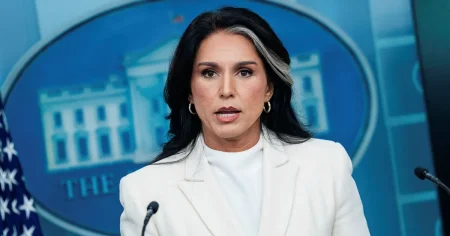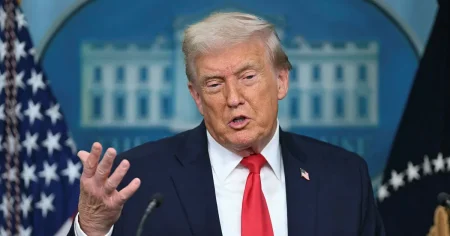Donald Trump Jr.’s unannounced visit to Greenland, just weeks before his father’s presidential inauguration, has ignited a firestorm of speculation and further strained the already delicate relationship between Denmark and Greenland. While Trump Jr. claimed the trip was a ”personal day trip” with no official meetings, the timing raises eyebrows given Donald Trump Sr.’s previous expressions of interest in ”buying” Greenland and subsequent threats towards Denmark. This backdrop of geopolitical maneuvering casts a long shadow over Trump Jr.’s visit, making it difficult to dismiss as purely personal.
The historical context of Greenland’s relationship with Denmark is crucial to understanding the current tensions. A former Danish colony until 1979, Greenland has been steadily progressing towards greater autonomy. Trump’s interest in acquiring the island, coupled with his son’s visit, seems to exploit this existing friction. Denmark, firmly opposed to relinquishing Greenland, finds itself caught in a complex three-way dynamic involving Greenland, itself striving for independence, and a powerful United States seemingly intent on leveraging the situation to its advantage. The apparent lack of prior notification to the Danish government about Trump Jr.’s visit, coupled with the Greenlandic Prime Minister’s cancellation of a meeting with the Danish King, further underscores the diplomatic strain.
The controversy surrounding the ”spiral campaign” adds another layer of complexity to the Danish-Greenlandic relationship. This dark chapter in Greenland’s history, where thousands of Greenlandic women and girls were subjected to forced sterilization by Danish doctors, has left deep scars. The campaign, purportedly aimed at controlling Greenland’s population and reducing Denmark’s financial burden, has resurfaced as a major point of contention. The recent lawsuit filed by 140 Greenlandic women seeking compensation for the trauma they endured has reignited calls for an official apology from the Danish government. Denmark’s reluctance to issue such an apology only exacerbates existing tensions and fuels Greenland’s push for independence.
Furthermore, linguistic and cultural differences contribute to the strained relationship. An incident in the Danish parliament, where a Greenlandic representative was asked to leave the podium for refusing to speak Danish instead of Greenlandic, highlights the cultural sensitivities at play. The denial of simultaneous translation for the Greenlandic language underscores the perceived lack of respect for Greenlandic culture and identity within the Danish parliament. These seemingly minor incidents become magnified within the larger context of Greenland’s struggle for autonomy and recognition.
The convergence of these factors – Trump’s geopolitical ambitions, the historical baggage of the spiral campaign, and the ongoing cultural and linguistic tensions – creates a volatile situation. Denmark’s perceived ”tone-deafness” in handling these delicate issues has left it vulnerable to external pressures, particularly from the United States. Trump Jr.’s visit, regardless of its stated purpose, can be interpreted as an attempt to capitalize on these existing vulnerabilities and further wedge Denmark and Greenland apart.
The strategic importance of Greenland, with its vast natural resources and strategically important location, cannot be overstated. As the Arctic region becomes increasingly accessible due to climate change, its geopolitical significance grows. This makes Greenland an attractive prospect for global powers like the United States. Against this backdrop, Donald Trump Jr.’s visit appears less like a personal trip and more like a calculated move in a larger geopolitical game. The long-term implications of this visit remain to be seen, but it undoubtedly adds another layer of complexity to the already intricate relationship between Denmark, Greenland, and the United States. The visit also highlights the challenges faced by smaller nations caught in the crosshairs of great power competition.














